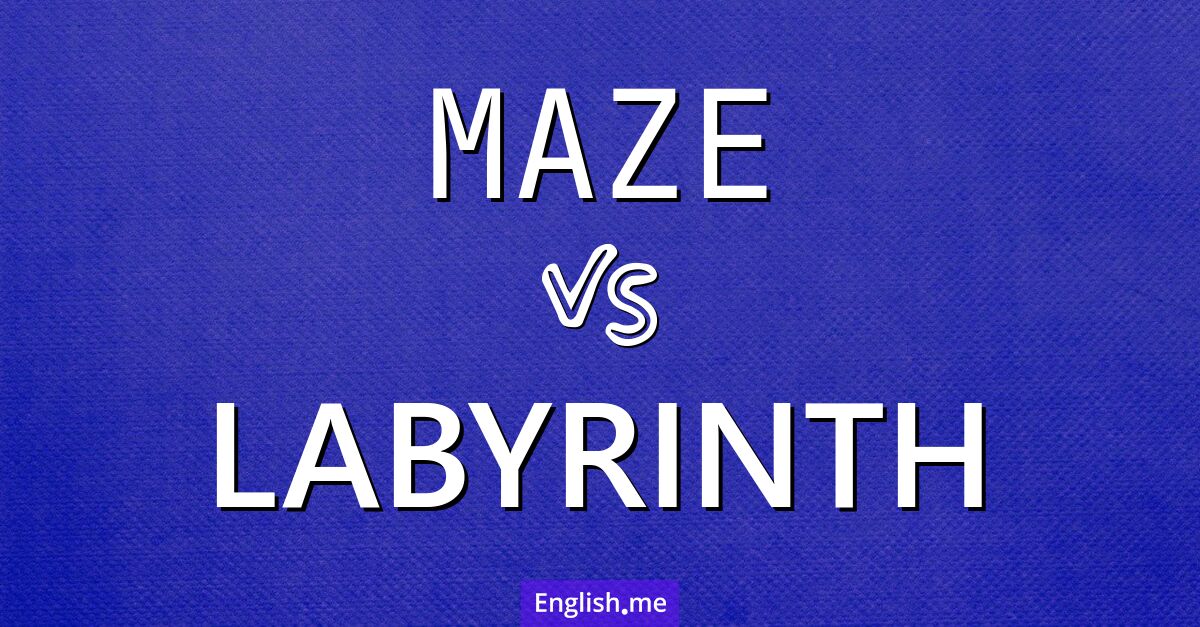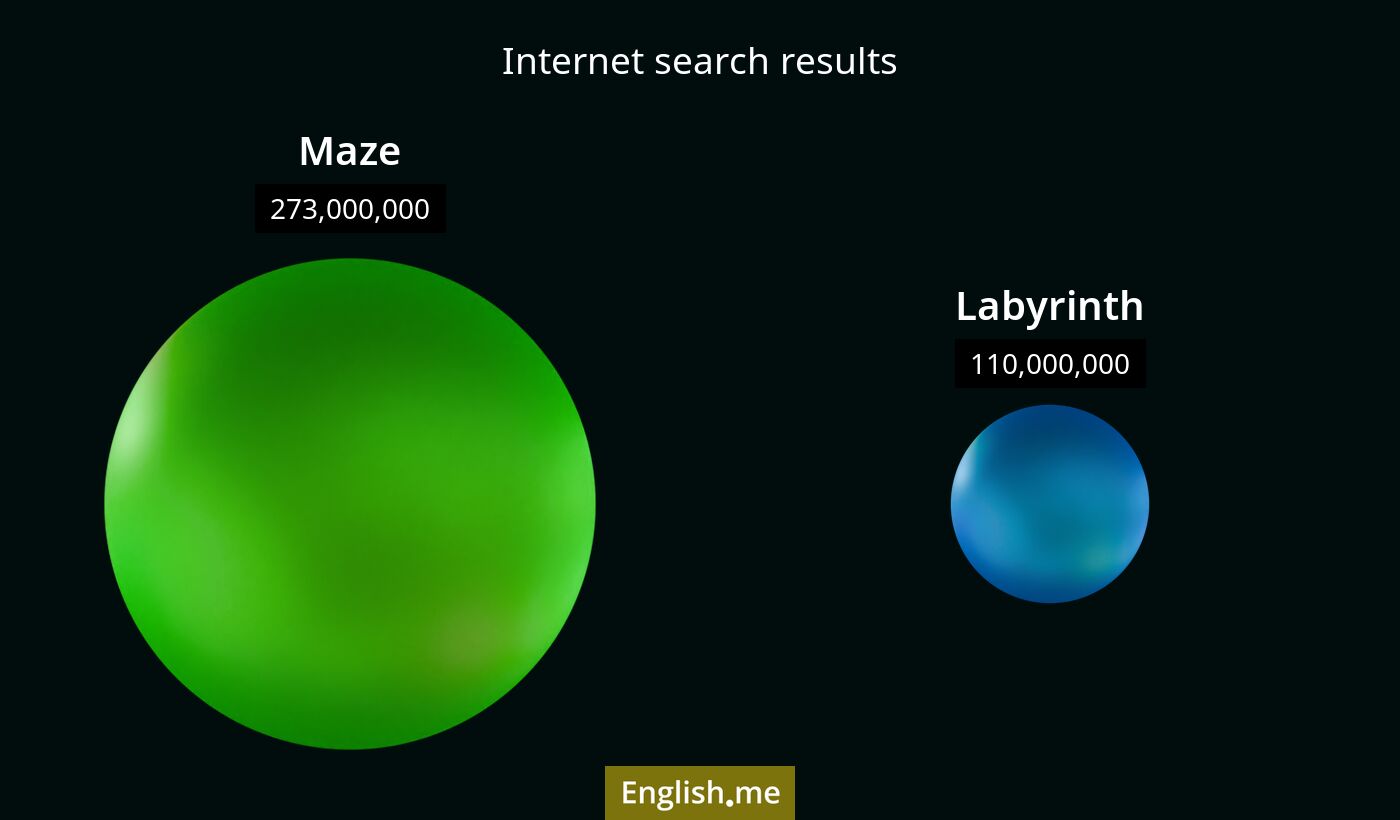"Maze" vs "labyrinth": what's the difference?
Reviewed and edited by  Anwar Kareem 23/02/2025, 06:15
Anwar Kareem 23/02/2025, 06:15
English.me team member

 What is similar?
What is similar?
Both "maze" and "labyrinth" refer to complex structures consisting of paths or passages, which may be confusing and challenging to navigate. They are often associated with puzzles and represent complicated situations or journeys.
 What is different?
What is different?
The word "maze" often implies a structure designed as a puzzle with multiple paths and usually includes dead ends, whereas "labyrinth" traditionally refers to a single, non-branching path leading to the center, though in modern usage it can also mean a complex network. "Maze" is frequently used in the context of entertainment or challenges, while "labyrinth" carries a more classical, mystical, or metaphorical connotation.
 Which one is more common?
Which one is more common?

 Examples of usage
Examples of usage
Maze- The children had fun solving the hedge maze in the park.
- The instructions felt like navigating through a maze of confusion.
- He wandered aimlessly through the maze, hoping to find the exit.
- The ancient labyrinth had only one path that spiraled towards the center.
- Her mind felt like a labyrinth of worries and unanswered questions.
- They explored the cave system, which resembled a natural labyrinth.

 English
English español
español française
française italiano
italiano deutsche
deutsche 日本語
日本語 polski
polski česky
česky svenska
svenska Türkçe
Türkçe Nederlands
Nederlands